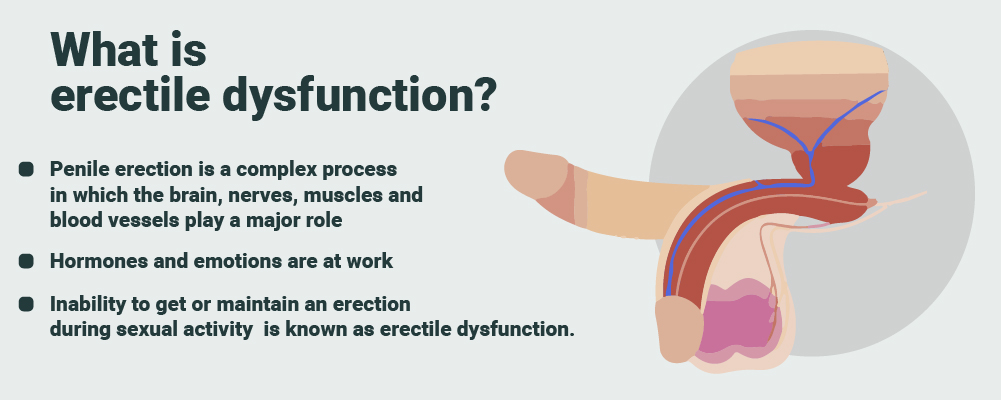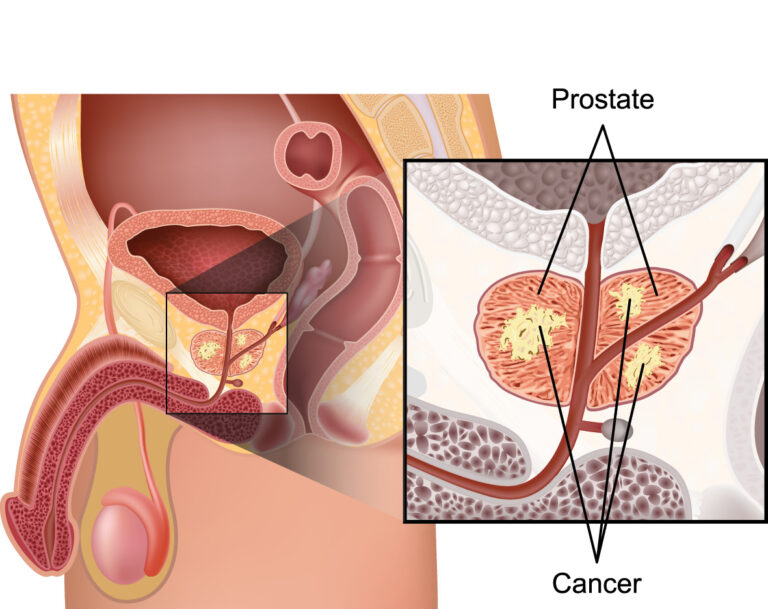Erectile Dysfunction Diagnosis Explained – What ICD- Code Means For Treatment

Understanding Erectile Dysfunction: A Brief Overview

Erectile dysfunction (ED) is a common condition that affects the ability of a man to achieve or maintain an erection for satisfactory sexual performance. It can have a significant impact on a man’s self-esteem, relationships, and overall quality of life. While ED is more prevalent in older men, it can occur at any age due to various underlying factors.
The causes of ED can be broadly categorized into two main types: organic and psychogenic. Organic causes are typically related to physical factors such as vascular diseases, hormonal imbalances, neurological disorders, or the side effects of certain medications. On the other hand, psychogenic causes are often associated with psychological factors such as stress, anxiety, depression, or relationship problems.
It is important to note that ED can be a symptom of an underlying medical condition, such as cardiovascular disease or diabetes. Therefore, it is crucial for individuals experiencing persistent erectile difficulties to seek medical attention for a thorough evaluation and accurate diagnosis. Proper diagnosis is key to determining the most effective treatment approach for each individual, as treatment options may vary depending on the underlying cause of ED. In the following sections, we will delve deeper into the role of ICD codes in diagnosing and classifying erectile dysfunction, as well as the various treatment options available.
The Role of ICD Codes in Medical Diagnosis
ICD, or International Classification of Diseases, codes play a vital role in medical diagnosis across various fields of medicine. In the context of erectile dysfunction (ED), these codes are used to classify and categorize the condition for both clinical and statistical purposes. By assigning a specific code to ED, healthcare professionals can accurately document and communicate the diagnosis, enabling effective treatment planning and monitoring.
The ICD code system provides a standardized language that allows healthcare providers to efficiently classify and track diseases and conditions. For ED, specific codes, such as N52.9 for erectile dysfunction, are assigned based on the underlying cause, severity, and other relevant factors. This classification system ensures consistency in diagnosis, which is crucial for accurate interpretation of data, research studies, and healthcare resource allocation. Furthermore, ICD codes facilitate the retrieval of medical records, making it easier for healthcare providers to assess a patient’s medical history and provide appropriate care.
• ICD codes are used to classify and categorize erectile dysfunction (ED) for clinical and statistical purposes.
• Assigning a specific code to ED allows healthcare professionals to accurately document and communicate the diagnosis.
• The standardized language provided by the ICD code system enables efficient classification and tracking of diseases and conditions.
• Specific codes for ED are assigned based on underlying cause, severity, and other relevant factors.
• Consistency in diagnosis through ICD codes is crucial for accurate interpretation of data, research studies, and resource allocation.
• Retrieval of medical records is facilitated by ICD codes, making it easier for healthcare providers to assess a patient’s medical history.
The Importance of Accurate Diagnosis for Effective Treatment
Accurate diagnosis plays a vital role in the effective treatment of erectile dysfunction (ED). Without a comprehensive understanding of the underlying cause or causes of ED, finding the most appropriate treatment approach can be challenging. Therefore, it is imperative to conduct a thorough evaluation to identify the specific factors contributing to an individual’s erectile difficulties.
One key aspect of accurate diagnosis is the recognition and consideration of the various symptoms and indicators associated with ED. These may include difficulty achieving or maintaining an erection, reduced sexual desire, and even emotional distress related to the condition. By carefully assessing a patient’s medical history and discussing their symptoms in detail, healthcare professionals can gather crucial information to aid in diagnosis. Furthermore, diagnostic tests are often employed to further investigate potential underlying causes, such as blood tests to assess hormone levels or imaging studies to examine the blood flow to the penis.
By obtaining an accurate diagnosis, healthcare providers can develop tailored treatment plans that address the specific needs and concerns of each patient. For instance, if ED is caused by an underlying medical condition such as diabetes or cardiovascular disease, targeting the management of these conditions may be the first step in effectively treating ED. Alternatively, if it is determined that psychological factors are contributing to the erectile difficulties, counseling and psychotherapy may be recommended as part of a holistic treatment approach. With a precise diagnosis, healthcare professionals can work in collaboration with their patients to select the most suitable treatment options, improving the likelihood of successful outcomes and enhancing overall quality of life.
Certainly! Here’s a concise data table on the importance of accurate diagnosis for effective treatment:
| Importance of Accurate Diagnosis for Effective Treatment | Description | Source |
|---|---|---|
| Tailored Treatment Plans | Accurate diagnosis allows healthcare professionals to create personalized treatment plans that address the specific underlying causes of a condition. | Journal of General Internal Medicine – Importance of Diagnostic Accuracy in the Clinical Evaluation of New Fever in Returning Travelers |
| Minimizing Risks and Side Effects | Knowing the exact nature of a health issue helps in selecting treatments that minimize risks and potential side effects, improving overall patient safety. | Mayo Clinic Proceedings – Diagnosis: The Foundation of Quality Healthcare |
| Avoiding Unnecessary Treatments | Accurate diagnosis prevents unnecessary and potentially harmful treatments, reducing the likelihood of adverse effects and healthcare costs. | BMJ – The importance of accurate risk stratification |
| Improving Patient Outcomes | Targeted treatments based on accurate diagnosis contribute to better patient outcomes by addressing the root cause of the condition more effectively. | Journal of the American Medical Association – Diagnostic Performance of Digital versus Film Mammography for Breast-Cancer Screening |
| Enhancing Patient Satisfaction | Patients are more likely to be satisfied with their healthcare experience when accurate diagnoses lead to successful treatments and improved well-being. | Patient Satisfaction and Quality of Care: The Influence of Patient Expectations – Journal of Health Economics |
Accurate diagnosis is the cornerstone of effective healthcare, guiding appropriate treatments and positively impacting patient outcomes.
Common Symptoms and Indicators of Erectile Dysfunction

Erectile dysfunction, often referred to as impotence, is a common condition that affects many men of different ages. It is characterized by the inability to achieve or maintain an erection sufficient for sexual intercourse. While occasional difficulty achieving or maintaining an erection is normal, persistent or recurrent problems may indicate the presence of erectile dysfunction.
One of the most common symptoms of erectile dysfunction is the inability to achieve an erection. This can manifest as a difficulty in initiating or maintaining an erection, or a complete inability to achieve one at all. In addition, men with erectile dysfunction may experience reduced sexual desire or libido. They may also have difficulty in achieving orgasm or even experience a decrease in the intensity of their orgasm. It is important to note that these symptoms may be caused by both physical and psychological factors, and a thorough evaluation is necessary to determine the underlying cause.
Diagnostic Tests Used in Evaluating Erectile Dysfunction

When evaluating erectile dysfunction, there are several diagnostic tests that healthcare professionals may utilize to identify the underlying cause. These tests help to determine whether the dysfunction is due to physical or psychological factors, aiding in the development of an appropriate treatment plan.
One common diagnostic test used is the nocturnal penile tumescence (NPT) test. This test involves the use of a device called a nocturnal penile tumescence monitor, which is worn overnight. The device measures changes in penile circumference and rigidity during sleep, providing valuable information about the quality and duration of erections. It can help differentiate between physical causes, such as vascular issues, and psychological causes, such as performance anxiety.
Another diagnostic test frequently used is the Doppler ultrasound. This non-invasive procedure allows healthcare professionals to assess the blood flow within the penis. By measuring the speed and direction of blood flow, Doppler ultrasound can help identify any blockages or abnormalities in the arteries supplying the penis. This test is particularly useful in diagnosing vascular causes of erectile dysfunction, such as atherosclerosis. In addition, it can also assess the function of the venous system, which is responsible for trapping blood within the penis to maintain an erection.
The ICD Code System: How it Works in Diagnosing Erectile Dysfunction
The International Classification of Diseases (ICD) Code System plays a significant role in diagnosing and classifying various medical conditions, including erectile dysfunction (ED). This system provides a standardized way of capturing and organizing information about diseases and health conditions for statistical purposes. When it comes to diagnosing erectile dysfunction, the ICD codes allow healthcare professionals to accurately document and communicate the diagnosis.
Each medical condition is assigned a specific code that provides a unique identifier for that condition. In the case of erectile dysfunction, the ICD codes offer a way to classify the different causes and types of this condition. This classification is crucial for both research purposes and clinical management. By using these codes, healthcare providers can determine the underlying cause of ED, whether it’s organic or psychogenic, and tailor the treatment approach accordingly. Additionally, the ICD codes enable accurate tracking of treatment outcomes, allowing for the evaluation of different interventions and their effectiveness in managing erectile dysfunction. Understanding how the ICD code system works in diagnosing erectile dysfunction is essential for healthcare professionals to ensure accurate documentation, appropriate treatment, and effective management of this condition.
Differentiating Between Organic and Psychogenic Erectile Dysfunction
Differentiating between organic and psychogenic erectile dysfunction is crucial in order to determine the appropriate treatment approach for patients. Organic erectile dysfunction is primarily caused by physical factors, such as vascular disease, hormonal imbalances, or structural abnormalities within the penis. These physical factors can interfere with the blood flow to the penile tissue, making it difficult for an individual to achieve or maintain an erection.
On the other hand, psychogenic erectile dysfunction is primarily attributed to psychological factors, such as stress, anxiety, depression, or relationship issues. These psychological factors can significantly impact a person’s sexual desire and ultimately lead to difficulties in attaining an erection. It is important to note that psychogenic erectile dysfunction may also have a secondary physiological component, as psychological factors can affect blood flow and the overall functioning of the male reproductive system.
Differentiating between organic and psychogenic erectile dysfunction requires a comprehensive evaluation of a patient’s medical history, physical examination, and diagnostic tests. Relevant factors such as the presence of chronic diseases, medication use, lifestyle factors, and psychosocial history should be considered. This detailed assessment helps healthcare professionals effectively identify the underlying cause of erectile dysfunction and subsequently tailor the treatment plan accordingly.
In the next section, we will explore the various diagnostic tests commonly used in evaluating erectile dysfunction, which can further aid in distinguishing between organic and psychogenic causes. By understanding the underlying cause of erectile dysfunction, appropriate treatment options can be recommended, leading to improved outcomes and quality of life for affected individuals.
ICD Codes and Treatment Options for Organic Erectile Dysfunction
Organic erectile dysfunction refers to the inability to achieve or maintain an erection due to physiological factors, such as diseases or conditions affecting the blood flow or nerve supply to the penis. As such, accurate diagnosis is crucial for determining the appropriate treatment options for individuals affected by this condition. This is where the International Classification of Diseases (ICD) codes play a pivotal role in the medical field.
ICD codes are alphanumeric codes used by healthcare professionals to classify and identify specific diseases, disorders, and medical conditions. These codes provide a standardized system that enables healthcare providers to accurately document and communicate diagnoses. For organic erectile dysfunction, ICD codes such as N52.02 for arteriogenic origin or N52.03 for venous origin assist in identifying the underlying cause, aiding physicians in formulating an effective treatment plan.
Treatment options for organic erectile dysfunction vary depending on the cause and severity of the condition. Lifestyle modifications, such as regular exercise, a balanced diet, and stress management techniques, are often recommended as initial interventions. These changes can help improve overall health and address underlying factors that may contribute to erectile dysfunction. In addition, medications such as PDE5 inhibitors, prostaglandin E1 agonists, or testosterone replacement therapy may be prescribed to enhance erectile function. Surgical interventions, such as penile implants, are considered for individuals who fail to respond to other treatment modalities. It is essential for healthcare providers to carefully evaluate each patient’s specific circumstances and tailor the treatment approach accordingly. Remember, effective treatment of organic erectile dysfunction begins with an accurate diagnosis supported by the appropriate ICD codes, enabling healthcare professionals to identify the most suitable treatment options for each individual.
ICD Codes and Treatment Approaches for Psychogenic Erectile Dysfunction
Psychogenic erectile dysfunction (ED) refers to the inability to achieve or maintain an erection due to psychological factors rather than physical causes. It is estimated that approximately 10-20% of all cases of ED are classified as psychogenic. These cases typically involve underlying emotional or psychological issues such as stress, anxiety, depression, or relationship problems.
The diagnosis of psychogenic ED is complex and requires a comprehensive evaluation that includes a detailed medical history, physical examination, and psychological assessment. Additionally, the use of ICD codes is essential in accurately classifying and documenting this condition for proper treatment and management. ICD codes specific to psychogenic ED enable healthcare providers to track the prevalence and severity of the condition, as well as monitor treatment outcomes and trends over time.
The treatment approaches for psychogenic ED are primarily focused on addressing the underlying psychological factors that contribute to the condition. Cognitive-behavioral therapy (CBT) is often used as an effective treatment method, which aims to modify negative thoughts and behaviors that interfere with sexual function. Additionally, couples therapy may be recommended to address relationship issues and improve communication and intimacy. It is important to note that individualized treatment plans should be developed based on the specific needs and circumstances of each patient.
How ICD Codes Aid in Tracking Treatment Progress and Outcomes
ICD codes play a crucial role in tracking treatment progress and outcomes for individuals with erectile dysfunction (ED). These codes are used by healthcare professionals to document and classify specific diagnoses, allowing for efficient communication and accurate data collection across various healthcare settings. By utilizing ICD codes, medical practitioners can monitor the effectiveness of different treatment approaches and identify trends in patient outcomes, ultimately improving the overall quality of care provided.
One way in which ICD codes aid in tracking treatment progress and outcomes is through the evaluation of specific interventions and their impact on patient health. For instance, healthcare professionals can use these codes to record the utilization of medication therapies, such as phosphodiesterase-5 inhibitors, and link them to improvements in erectile function. This information can be helpful in identifying the most effective treatment options and guiding future treatment decisions. Furthermore, the systematic use of ICD codes allows for data collection on the management of comorbid conditions, such as diabetes or hypertension, which may have a significant influence on treatment outcomes.
Additionally, ICD codes can assist in monitoring the long-term impact of treatment interventions on patients’ overall well-being. By consistently documenting and coding patient outcomes, healthcare providers can identify potential complications or side effects associated with specific treatment regimens. For instance, tracking ICD codes related to cardiovascular events or adverse reactions to medications can help assess the overall safety and effectiveness of different treatment approaches. This information supports evidence-based decision making and enables healthcare professionals to customize treatment plans to meet each individual’s specific needs.
In conclusion, the use of ICD codes in tracking treatment progress and outcomes for patients with erectile dysfunction is invaluable. These codes not only facilitate effective communication among healthcare providers but also allow for the collection and analysis of patient data, thereby enhancing the quality of care delivered. By utilizing ICD codes, healthcare professionals can monitor treatment effectiveness, evaluate the impact of interventions on patient health, and identify potential complications, ultimately striving for improved outcomes and a better quality of life for individuals living with erectile dysfunction.
Potential Complications of Untreated Erectile Dysfunction
Erectile dysfunction (ED) is a medical condition that can have serious implications for an individual’s overall health and well-being. If left untreated, it can result in a number of potential complications. One of the most significant complications of untreated ED is the impact it can have on a person’s mental health. The frustration, embarrassment, and feelings of inadequacy that often accompany the inability to achieve or maintain an erection can lead to anxiety, depression, and a decline in self-esteem.
In addition to the psychological consequences, untreated ED can also have detrimental effects on a person’s physical health. Research has shown that men with untreated ED are at a higher risk of developing cardiovascular diseases, such as heart disease and hypertension. This is because the same underlying issues that can lead to erectile dysfunction, such as impaired blood flow, can also contribute to the development of these cardiovascular conditions. Furthermore, untreated ED has been associated with an increased risk of developing diabetes and metabolic syndrome.
It is important to note that the potential complications of untreated erectile dysfunction can extend beyond the individual experiencing the condition. ED can strain relationships and lead to emotional and physical distance between partners. This can have a negative impact on intimacy and overall relationship satisfaction. Seeking proper diagnosis and treatment for erectile dysfunction is crucial not only for the affected individual’s well-being but also for the health of their relationships and overall quality of life.
Multidisciplinary Approach to Treating Erectile Dysfunction
A multidisciplinary approach to treating erectile dysfunction (ED) is crucial in order to provide comprehensive care and address the underlying causes of the condition. ED can arise from a variety of factors including physical, psychological, and lifestyle-related issues. Therefore, a multidisciplinary team consisting of healthcare professionals from various specialties, such as urologists, endocrinologists, psychologists, and nutritionists, can work together to develop an individualized treatment plan tailored to the specific needs of each patient.
Urologists play a key role in diagnosing and treating ED, as they possess expertise in the male reproductive system. They can perform diagnostic tests, such as penile Doppler ultrasound, to assess blood flow and identify anatomical abnormalities. Urologists may also prescribe medications, such as phosphodiesterase type 5 inhibitors, which enhance the erectile response. However, it is important to address the underlying causes of ED, and this is where a multidisciplinary approach becomes essential.
Psychological factors, such as stress, anxiety, and depression, can significantly contribute to ED. Therefore, involving psychologists or psychiatrists in the treatment process can help patients address and manage these psychological issues. Additionally, a nutritionist can provide guidance on adopting a healthy diet and lifestyle modifications that may improve overall sexual health. By combining medical intervention with psychological support and lifestyle changes, a multidisciplinary approach addresses multiple aspects of ED, improving the chances of successful treatment outcomes.
(Note: This is a short section of the article and does not provide a conclusion.)
The Importance of Regular Follow-ups and Reassessment in Erectile Dysfunction Treatment
Regular follow-ups and reassessment play a crucial role in the effective treatment of erectile dysfunction (ED). As with any medical condition, the management of ED requires ongoing monitoring and adjustment to ensure optimal outcomes for patients. By routinely checking in with patients, healthcare providers can closely monitor the progress of treatment, assess any changes in symptoms, and make necessary modifications to the treatment plan.
During regular follow-up appointments, healthcare professionals can evaluate the effectiveness of the chosen treatment approach and determine whether any adjustments need to be made. This can include assessing the patient’s response to medication, evaluating the need for dosage adjustments, or exploring alternative treatment options if needed. Additionally, regular check-ins provide an opportunity to address any concerns or questions that the patient may have, ensuring they feel supported throughout the treatment process.
Reassessment is essential in the management of ED because the condition can be influenced by various factors, including lifestyle choices, underlying health conditions, and psychological well-being. By periodically reassessing the patient’s condition, healthcare providers can identify any new contributing factors that may have arisen and adjust the treatment plan accordingly. Furthermore, reassessment allows for ongoing monitoring of treatment outcomes and provides an opportunity to adapt interventions as needed to achieve the best possible results for the patient.
In conclusion, regular follow-ups and reassessment are fundamental components of effective ED treatment. They enable healthcare providers to closely monitor the patient’s progress, assess the efficacy of the chosen treatment approach, and make any necessary adjustments. Through this comprehensive and ongoing evaluation, patients can receive tailored care and support, enhancing their chances of successful treatment outcomes.
What is erectile dysfunction?
Erectile dysfunction refers to the inability to achieve or maintain an erection firm enough for sexual intercourse.
How is erectile dysfunction diagnosed?
Diagnosis of erectile dysfunction is usually based on a thorough medical history, physical examination, and the use of diagnostic tests such as blood tests, ultrasound, or psychological evaluations.
What are some common symptoms of erectile dysfunction?
Common symptoms of erectile dysfunction include difficulty achieving or maintaining an erection, reduced sexual desire, and experiencing anxiety or stress related to sexual performance.
How does the ICD code system help in diagnosing erectile dysfunction?
The ICD code system provides a standardized method for classifying and coding medical diagnoses, including erectile dysfunction. This helps healthcare professionals accurately document and track the condition for effective treatment.
What is the difference between organic and psychogenic erectile dysfunction?
Organic erectile dysfunction is caused by physical factors such as underlying health conditions or medication side effects, while psychogenic erectile dysfunction is primarily caused by psychological factors such as stress or anxiety.
What treatment options are available for organic erectile dysfunction?
Treatment options for organic erectile dysfunction may include lifestyle changes, medication, vacuum erection devices, penile implants, or surgery, depending on the underlying cause and severity of the condition.
What treatment approaches are used for psychogenic erectile dysfunction?
Treatment approaches for psychogenic erectile dysfunction often involve psychotherapy, counseling, and addressing underlying psychological issues that may be contributing to the condition.
How do ICD codes aid in tracking treatment progress and outcomes?
By using specific ICD codes, healthcare providers can track the effectiveness of different treatment approaches, monitor changes in symptoms, and evaluate overall treatment outcomes for erectile dysfunction.
Are there any potential complications of untreated erectile dysfunction?
Yes, untreated erectile dysfunction can lead to relationship problems, decreased self-esteem, depression, and can be a sign of underlying health conditions such as heart disease or diabetes.
Is a multidisciplinary approach beneficial in treating erectile dysfunction?
Yes, a multidisciplinary approach involving healthcare professionals from different specialties such as urology, psychology, and cardiology can provide comprehensive care and improve treatment outcomes for erectile dysfunction.
Why are regular follow-ups and reassessment important in erectile dysfunction treatment?
Regular follow-ups and reassessment allow healthcare providers to monitor treatment progress, adjust treatment plans if necessary, address any new concerns or complications, and ensure optimal management of erectile dysfunction.






